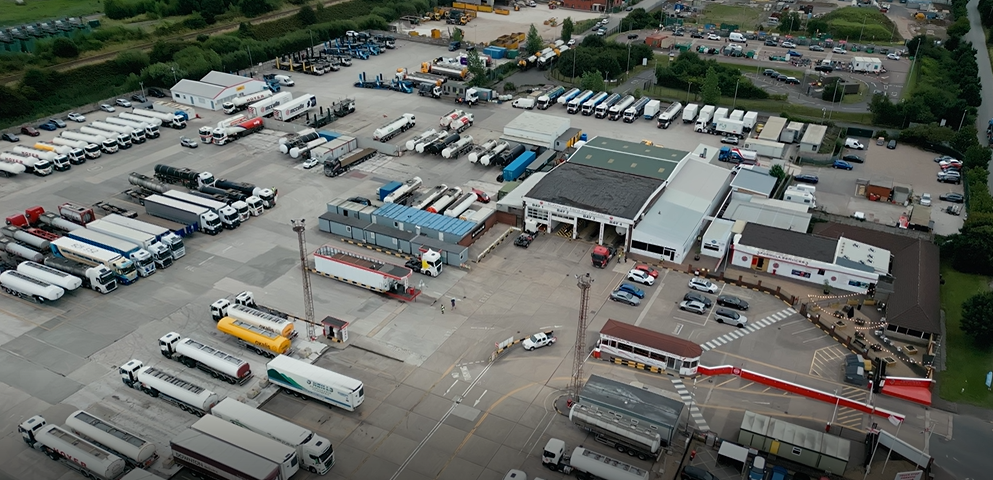
Josh Cousens
O papel da gestão de frotas no sector dos camiões: Porque é importante
Criado: 26/02/2025
•
Atualizado: 26/02/2025
No mundo em rápida evolução da mobilidade e do transporte rodoviário, uma [gestão de frotas] eficaz (https://snapacc.com/fleet-operators/) é essencial para manter os camiões em movimento, reduzir os custos e melhorar a eficiência.
Quer se trate de uma pequena frota ou de uma grande empresa de camionagem, o software de gestão de frotas adequado pode transformar a forma como as empresas gerem os seus veículos, condutores e despesas operacionais.
Manter as operações eficientes
A gestão de frotas é crucial para garantir que os camiões chegam onde têm de estar, a tempo e de forma rentável.
A gestão de frotas de camiões minimiza os atrasos e reduz as despesas desnecessárias, acompanhando o desempenho dos veículos, o consumo de combustível e a atividade dos condutores.
Sem uma abordagem estruturada, as frotas arriscam-se a ter problemas de desempenho que podem levar a despesas operacionais mais elevadas e a uma redução da rentabilidade.
Como é que a gestão de frotas melhora a segurança e a conformidade dos condutores?
Os operadores de frotas estão muito preocupados com o bem-estar dos condutores. No entanto, uma frota bem gerida assegura a manutenção correta dos veículos, optimiza as rotas para reduzir a fadiga e cumpre os regulamentos de conformidade.
O software de gestão de frotas ajuda as empresas a monitorizar o comportamento dos condutores, a aplicar políticas de segurança e a reduzir o risco de acidentes ou de sanções por incumprimento.
Como é que a gestão de frotas pode reduzir os custos operacionais das empresas de camionagem?
Alguns dos custos mais significativos no sector dos transportes são as despesas de combustível, a manutenção dos veículos e o tempo de inatividade.
A implementação de soluções de gestão de frotas de camiões ajuda os operadores a controlar o consumo de combustível, a planear rotas eficazes e a garantir que os veículos são assistidos na altura certa, evitando avarias dispendiosas e reparações não planeadas.
Com os dados corretos, os gestores de frotas podem tomar decisões informadas que reduzem as despesas desnecessárias e melhoram a rentabilidade.

Como é que os sistemas de gestão de frotas podem apoiar a sustentabilidade no sector dos camiões?
A sustentabilidade está a tornar-se uma prioridade crescente no sector dos transportes. Os sistemas de gestão de frotas permitem aos operadores controlar as emissões, monitorizar a eficiência do combustível e introduzir práticas de condução ecológicas que reduzem o impacto ambiental.
As frotas podem utilizar soluções baseadas em dados para efetuar ajustes estratégicos que se alinham com os regulamentos da indústria e os objectivos de sustentabilidade da empresa.
Quais são os maiores desafios na expansão de uma frota de camiões?
A expansão de uma frota de camiões apresenta desafios, como a gestão da maior complexidade logística e a manutenção da produtividade. Aqui estão alguns desafios que as frotas podem encontrar ao aumentar a sua frota.
- À medida que as frotas crescem, a programação avançada, a otimização de rotas e o planeamento da manutenção tornam-se essenciais para evitar atrasos e períodos de inatividade.
- Além disso, garantir normas e regulamentos de segurança consistentes torna-se mais difícil à medida que a frota se expande, aumentando o risco de problemas e penalizações.
- A expansão também exige um investimento significativo em infra-estruturas, como a contratação e formação de mais condutores e a atualização do software de gestão de frotas.
Como a SNAP apoia a gestão de frotas
Na SNAP, compreendemos os desafios que os operadores de frotas enfrentam. A nossa rede de soluções digitais para o sector da mobilidade ajuda as empresas a simplificar as suas operações e a melhorar a segurança e a comodidade dos condutores.
Fornecemos acesso a uma rede crescente de locais de estacionamento e lavagem em toda a Europa, ajudando as frotas a reduzir as paragens não planeadas, a aumentar a produtividade das rotas e a manter os camiões em movimento sem atrasos.
À medida que a tecnologia de gestão de frotas evolui, estamos empenhados em fornecer soluções inovadoras que apoiem as necessidades em constante mudança do sector.
O software de gestão de frotas e as informações baseadas em dados ajudam os gestores de transportes a simplificar as operações, a reduzir as despesas e a garantir que as suas frotas funcionam no seu potencial máximo.
Considerações finais
A gestão de frotas é mais do que o controlo de veículos. Trata-se de tomar decisões estratégicas para melhorar a eficiência, reduzir os riscos e apoiar o crescimento do negócio a longo prazo.
Com a abordagem correta de gestão de frotas de camiões, os operadores podem ultrapassar os desafios da indústria e garantir que as suas frotas funcionam sem problemas.
Procura soluções de gestão de frotas mais inovadoras? Descubra como os serviços da SNAP podem otimizar as suas operações. Explore as nossas soluções hoje mesmo.



